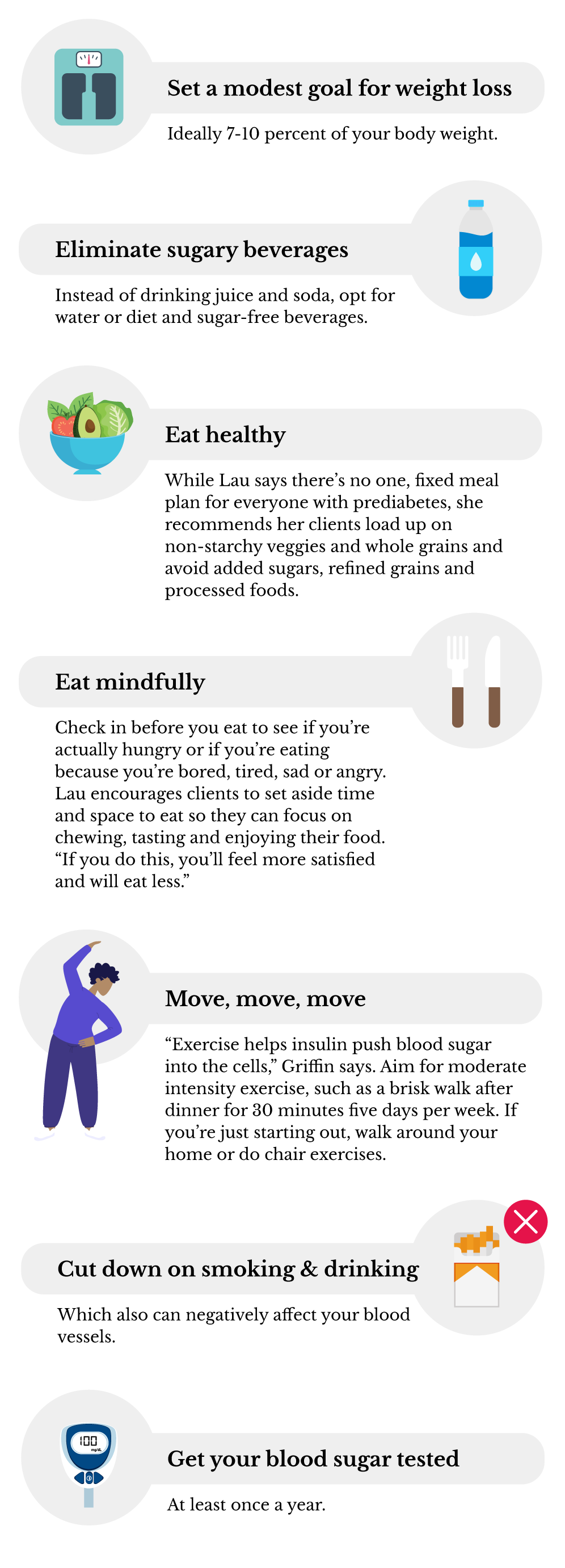Nov 1, 2024
A recipe for better health
This past winter, Armand Perreault was given some troubling news. He learned his blood sugar was elevated and that he had prediabetes.
The 71-year-old Marine and Vietnam veteran was motivated to take action because he has seen firsthand the havoc diabetes can wreak on the body.
“I know other people who have diabetes, and I’m aware of the ways it can impact your health,” he said. “I told myself, ‘Now’s the time to make sure I do everything I can to prevent this from turning into diabetes.’”

During the winter and spring, Perreault took steps to modify his diet, thanks to longtime advice and support from his wife, Irene, a nurse, and his daughter, Kimberly, a registered dietitian. He stopped drinking sugary beverages, such as his nightly apple cider, and putting sugar in his morning coffee. “I have not lifted one teaspoon of sugar since February,” he said.
He took even more strides forward this summer after working with registered dietitian and certified diabetes educator Jane Griffin as part of an innovative new Diabetes Navigator Program offered by his Medicare Advantage plan.
The program provides tailored support and resources to Blue Cross Blue Shield of Massachusetts Medicare Advantage members with diabetes or prediabetes.
“Working with Jane has definitely been helpful because she supported what my wife and daughter have been telling me for years about what I should and shouldn’t eat and the quantities,” Perreault said.
A common condition
Perreault is among 96 million Americans—or 1 in 3—with prediabetes, a condition that affects the body’s response to the hormone insulin. Insulin helps glucose enter cells in your muscle, fat, and liver, where it’s used for energy. Insulin also lowers glucose after you eat to keep your blood sugar in the normal range. Prediabetes is a state of insulin resistance that allows a high level of glucose to stay in your bloodstream rather than entering your cells -- but not high enough to be diagnosed as diabetes. Over time, patients with prediabetes can develop serious conditions such as type 2 diabetes, heart disease or stroke.
Most people with prediabetes don’t even know they have it. There rarely are symptoms, and the only way to confirm it is through a test.
“Your doctor should be monitoring you for the condition,” Griffin said. “That’s why it’s so important for people to have a doctor and go in for regular check-ups.”
And it’s important to be aware of risk factors, said Karen Lau, a registered dietitian and certified diabetes education and care specialist at Joslin Diabetes Center, who helped author the latest national nutrition therapy consensus report for the American Diabetes Association.
“If you are overweight, meaning a body mass index greater than 25 or greater than 23 for Asian Americans, don’t do much physical activity, have gestational diabetes history, or have high blood pressure or high cholesterol, you are at a higher risk for developing prediabetes,” she said.
Small changes are key
Griffin and Lau both encourage clients with prediabetes to make small lifestyle changes that can help halt the progression of the disease.
“Being told you have prediabetes is a blessing in disguise because you have a chance to do something about it,” Griffin said.
The good news is by making some lifestyle changes, you can prevent or delay your progression to type 2 diabetes. I tell my clients to start with something small they’re confident they can maintain.

- Karen Lau said
Here are some good places to start:

“If you change the way you eat and add in more physical activity, not only will you bring your blood sugar numbers down,” Lau says, “you’ll probably feel better overall.”
Support such as the Medicare Diabetes Prevention Program can be helpful. The program is offered at some YMCAs and other sites, and is covered for Medicare Advantage members.
Slow and steady
Griffin worked with Perreault to implement those kinds of small, sustainable lifestyle changes.

“Armand has done a wonderful job making changes he can stick to,” Griffin said. “His focus and determination have put him on a path to success.”
Perreault learned to check nutrition labels to see how much sugar and carbohydrates he’s consuming.
He’s also become mindful of his portions. “I used to have 4-5 mandarin oranges a night, which I found out is a lot of sugar. Now I have one a night. Jane says, ‘If it fits in your hand, that’s your portion.’”
He amped up his exercise, too. “I’m very active, but I kicked it up even more,” he says, by biking, kayaking, walking and hiking with his wife and their golden retriever, Woody.
Since the beginning of the year, Perreault has lost six pounds, and his blood sugar numbers have decreased.
He has approached this challenge the same way he’s approached other obstacles in his career—with discipline and hard work.
“I’m very serious about this,” he said.
I would encourage other people with prediabetes to try to take steps on their own to get their numbers down, and if they can’t do it by themselves to reach out for help. I also would say don’t look at the big picture. Just go at it steady and slow, and you might notice you feel better about yourself.
Did you find this article informative?
All Coverage content can be reprinted for free.
Read more here.

